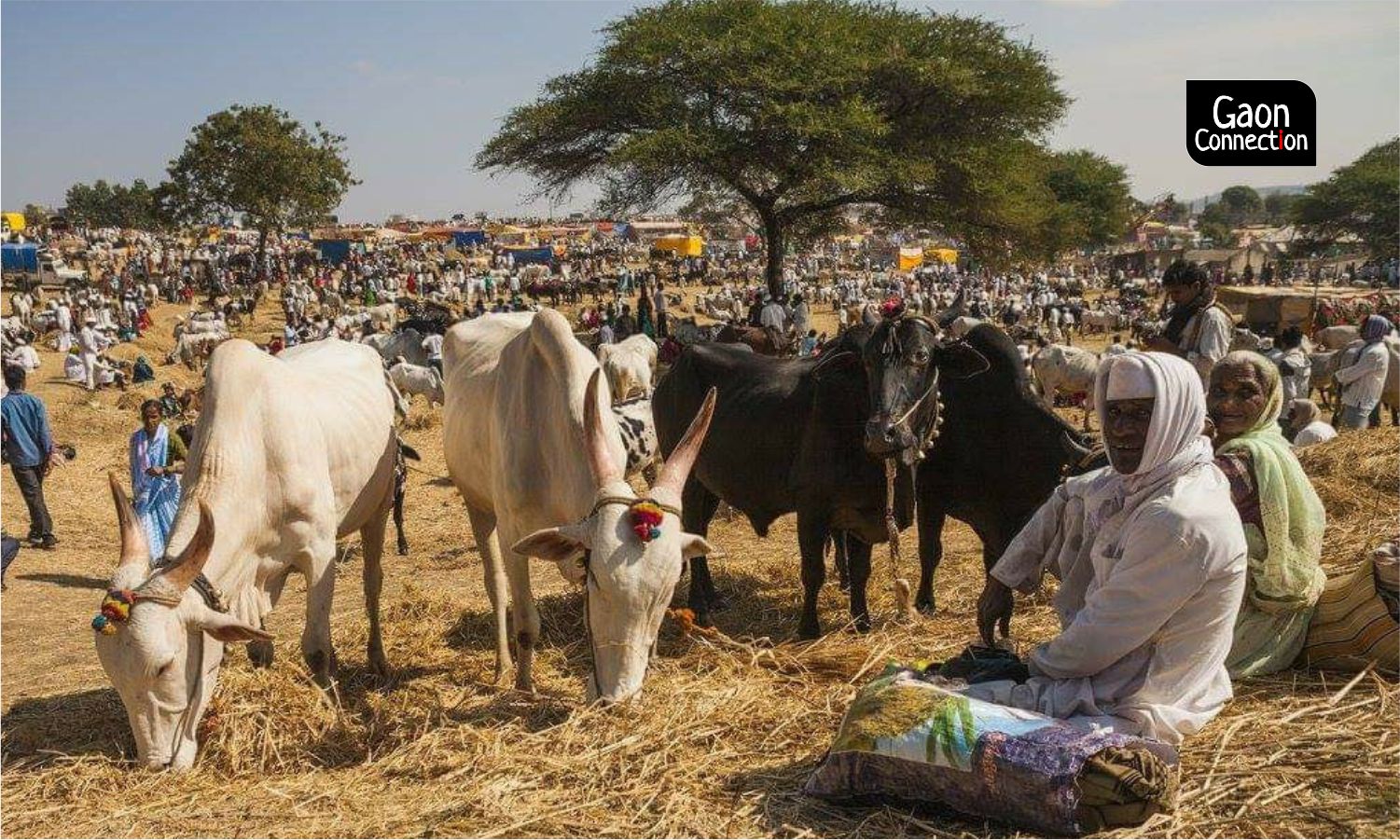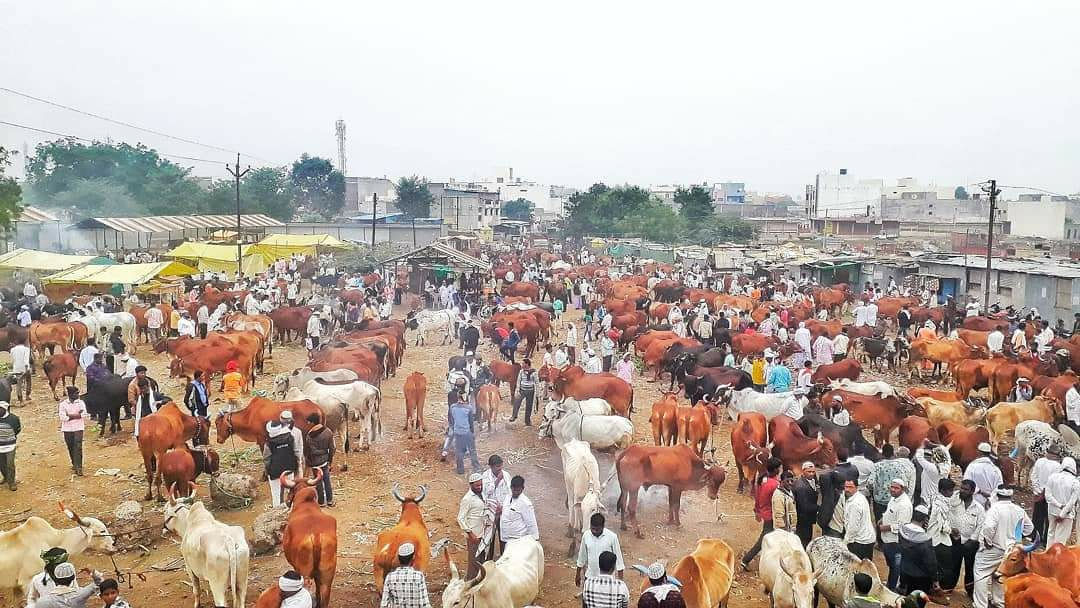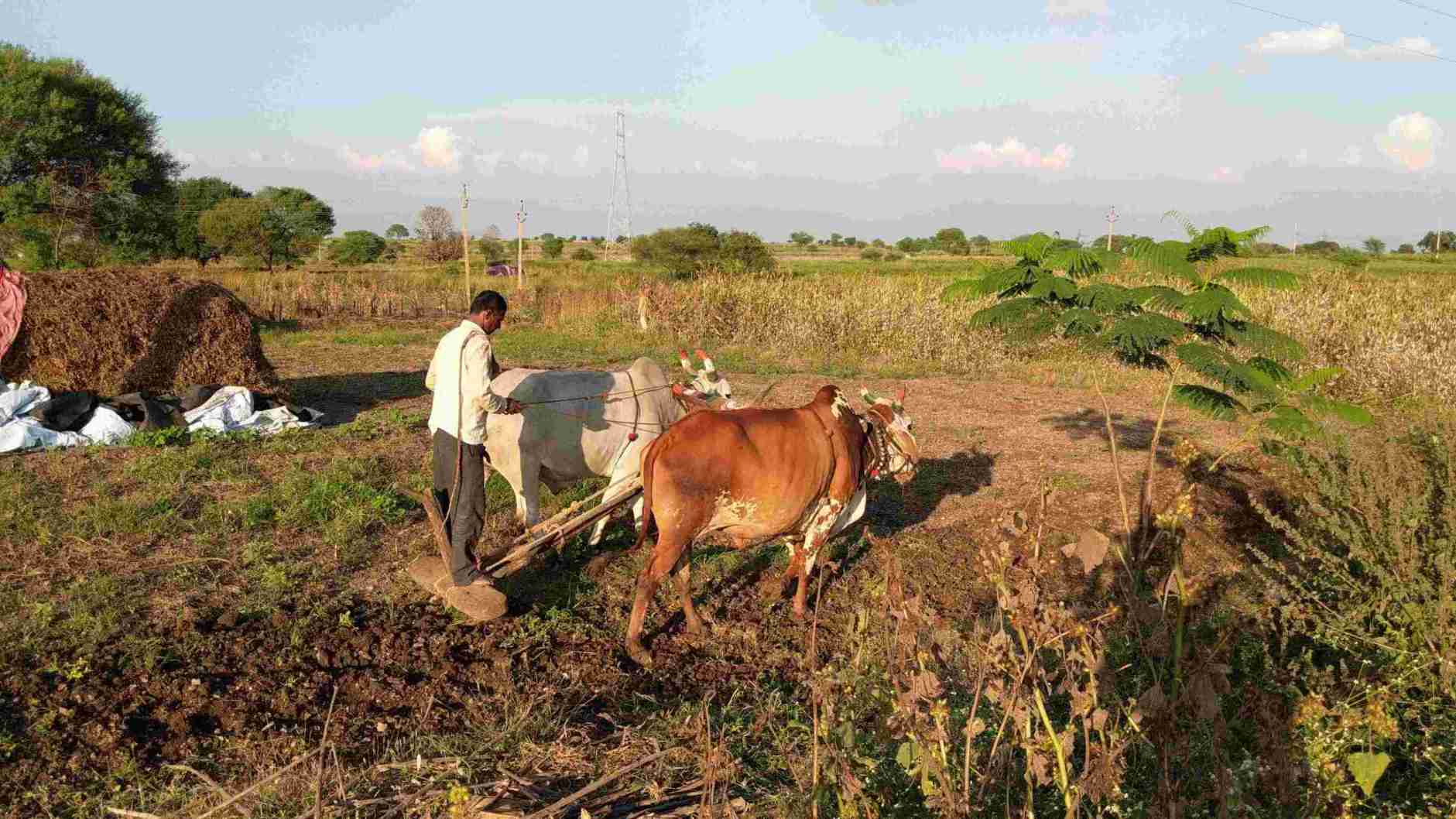With cattle markets shut and the monsoon around the corner, Maharashtra farmers are in a fix
April and May are the months when farmers in Maharashtra buy bulls to help them sow their kharif crops, or sell them to repay moneylenders and buy seeds and fertilisers. But the cattle markets are shut due to the COVID-19 pandemic, leaving the farmers high and dry.

Cattle markets are experiencing a dry spell for two years in a row. Photo: Vishal Gorpade
Aurangabad, Maharashtra
The southwest monsoon is just over a month away and it is time to prepare agricultural fields for the kharif crop season. But there is little activity in the farm lands in Marathwada and Vidarbha regions of Maharashtra, the western state most affected due to the COVID-19 pandemic.
To control the spread of the virus, the state government has imposed several restrictions including the suspension of the state’s weekly bull markets at Paithan, in Aurangabad district (Marathwada); and Pusad, Umarkhed and Arni in Yavatmal district in the Vidarbha region. This has badly affected farmers in Marathwada and Vidarbha regions that are notorious for recurring droughts and high farmers’ suicides.
Farmers need bulls to prepare their fields for sowing of the crops. In the absence of the bulls markets, brokers of livestock have formed WhatsApp groups with cattle herders and farmers to share details of buying and selling livestock. But, moving online is not the perfect alternative to a physical market, farmers in Maharashtra are discovering.
“We have to sow before the rains and for this we need a pair of healthy bulls,” Balasaheb Nehale from Pachod village, Aurangabad, told Gaon Connection. But the 50-year-old farmer said he preferred to directly inspect the bulls before parting with his money. “In the market we are in physical proximity of the bulls and the brokers. We can inspect the animals and negotiate with the broker,” he added.
Despite mechanisation, a large population of farmers in Marathwada and Vidarbha depend on bulls for cultivation. And this closure of the markets has left them high and dry.
“Vidarbha has mostly small farmers and they need bulls as they do not own tractors,” Arun Raut from Pusad village in Yavatmal district, explained to Gaon Connection. “The poor trading of bulls at the markets owing to the COVID-19 pandemic will severely affect the cultivation of many small farmers,” the 54-year-old farmer said.

WhatsApp bull markets
People from eight to ten villages are part of the WhatsApp groups and photographs and descriptions of the cattle and their price are discussed on it. Many farmers are struggling with this as they are not used to online negotiations, and have apprehensions of making a bad deal.
Nehale suspected that the prices the brokers put up on WhatsApp were not entirely upfront. “Sometimes a pair of bulls may be worth fifty thousand rupees. But on WhatsApp, the broker wants to sell them for sixty five thousand rupees. One can’t tell their value by just looking at their photo on whatsapp,” he complained.
Also Read: Pest attack: Pink bollworm is back; cotton crop in Vidarbha, Maharashtra in big trouble
As the kharif sowing approaches and the farmers need strong bulls to sow their fields. April and May are the months when they usually buy the bulls. Or, sell them to repay money lenders or buy seeds and fertilisers with the money they get from the sale. With the cattle market in Paithan shut due to the pandemic, “It is hurting the farmers a great deal,” Afsar Patel, a 45-year-old livestock farmer from Pachod, reiterated.
The cattle market at Paithan in Aurangabad is vital to the agrarian economy, too. In addition to bulls, cows, buffaloes and goats are purchased and sold here. So are ploughs and baskets that promote local small industries. Apart from Aurangabad, livestock traders from Ahmednagar, Beedh and Jalna come to the market at Paithan, that brings in considerable revenue for the gram panchayat.
But, not during a raging pandemic.

A dry spell
Because of the pandemic, the cattle markets are shut in the most crucial months for bull trade. “Sugarcane labourers who have returned home to their villages come here to sell their animals and make some money at this time. At the same time, farmers are on the lookout for bulls to plough their fields before the monsoons arrive,” explained Patel.
So, the prices of bulls remain high and a large number of bulls are traded in these months. But the raging pandemic has put a stop to that with the cattle markets experiencing a dry spell for two years in a row.
Also Read: 60% dairy farmers failed to get a fair price during the lockdown: Gaon Connection survey
“The market in Pusad alone does trade worth twenty-five to thirty lakh rupees a day during the season,” Sheikh Akhtar, chairperson, Agro-Based Market Committee, Pusad, told Gaon Connection. He also said that farmers and traders from the neighbouring states of Madhya Pradesh and Chhattisgarh come to these markets to buy bulls at a good price. The bulls are priced anything between Rs 50,000 and Rs 80,000.
“If the cattle market is not reopened by May we will face a big problem. The monsoon will be upon us, the sowing will have to be done in great haste, and the farmers will have no time to procure bulls,” Raut worried.

